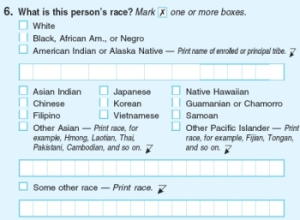LEP
I recently had the pleasure of doing some in-depth research regarding Title VI and Title VII discrimination claims under the Civil Rights Act of 1964 (CRA), paying particular attention to the phrase “national origin.” Title VI of the Civil Rights Act of 1964, 42 U.S.C. § 2000d (2000); Title VII of the Civil Rights Act of 1964, 42 U.S.C. § 2000e-2 (2000). Faced with broad yet profound research inquiries, I spent hours poring over material, and began to note a rather interesting strand of debates that involved a single question: does the CRA’s prohibition against national origin discrimination also prohibit language discrimination?
Not a novel question, and yet it is a reflection of today’s growing social and political concerns. Thousands of legal professionals have wrestled with the implications behind allowing an individual’s native language to provide the basis for legal action in situations of discrimination. We continue to presumably draw on the following logical inference — discrimination against my language, in essence, discriminates against my culture, my national heritage, which ultimately amounts to an affront to my civil rights.
Setting the legal question aside, I became heavily acquainted with this term: LEP, as in Limited English Proficiency.


